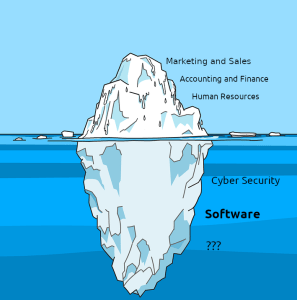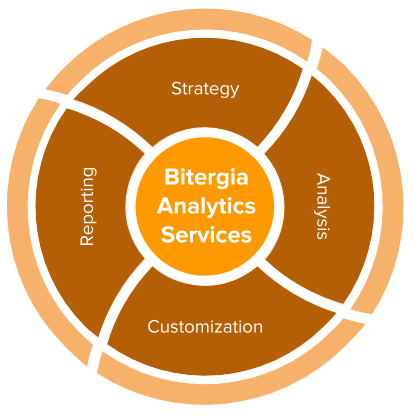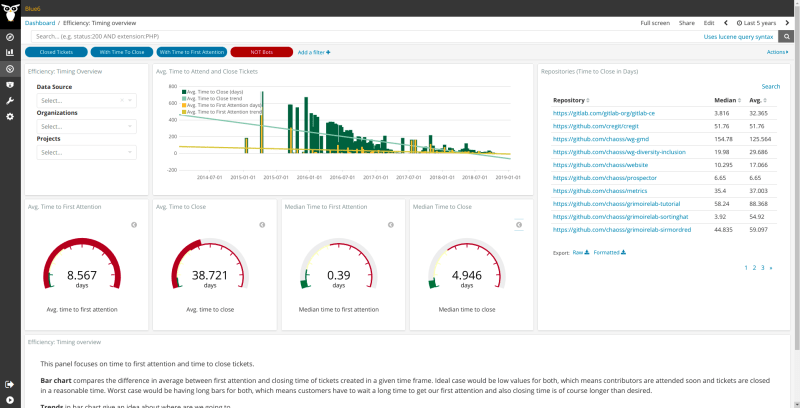When companies embark on a Digital Transformation journey, one of the first things some of these companies implement is the latest technology and tools available in the market within their software infrastructure. However, all this technology will be nonsense if you don’t have a clear purpose.
This post will guide you through the basics of data strategy journey and learn more about the hidden valuable of data related with Software Development, which any company that embraces Digital Transformation should be aware of.
Digital transformation and Data Analytics usage
Data analysis is one of the key components of Digital Transformation. Thousands and thousands of software companies claims that they’re data-driven firms because they are now able to process larger data volumes, integrate better-looking automated tools and get beautiful dashboards and reports to search for information. Indeed, it looks like new techniques and technologies have improved over the last decades, but most companies still failing when it comes to get the real business value out of data.
Data analytics is the driving force for those organizations embarking on a digital journey and it should start with business objectives, not technology. Thus, companies should know what do they want to solve with analytics, beginning with questions aligned with goals. This will help them to find the optimal usage of data for their specific purposes and not just looking at a bunch of numbers and visualizations, trying to find some insights to tell at the next board meeting.
Why having a Data Strategy based on Software Development?
Companies still have a lot of valuable data waiting to be discovered. What companies usually measure is just the top of the iceberg. Analytics have strong boundaries around sales and marketing tasks, but is practically undetectable when it comes to analyze Software Development processes.

It’s a fact that software is eating the labor market and is a crucial asset for any digital company. Thus, if you want to rely on metrics and data analysis to take better decisions, you surely need to take care of how your different software development teams are performing, the activity it has, and how your developers interact among the different projects.

4 steps to implement Data Strategy based on Software Development: Introducing “Bitergia Analytics Cycle”
As we mention before, data-driven companies need to know their goals and what they want to accomplish. Always remember every step you made must be always aligned with these goals.

1) Define a strategy
Sun Tzu said once, “Strategy without tactics is the slowest route to victory. Tactics without strategy is the noise before defeat” This means that before thinking – let’s use big data tools because that gives us data and data is cool- take a step back and ensure that your overall strategy is defined. Do you know how you plan on winning in your marketplace? What kind of data strategy you need? How will it help you to achieve your goals?
How Bitergia Analytics helps you to define a strategy?
With more than 15 years of research experience about analyzing software development processes, specially in collaborative environments, Bitergia helps organizations to focus an strategy around software development to achieve organization’s business goals.
Use case: For instance, a company willing to lead, from a Software Development Analytics point of view, we might set an objective like having low development and deployment time. In order to achieve this, the company could have a mentoring program as one of the tactics.
2) Start the analysis
Once you’ve got a strategy, it’s time to define questions, and metrics to answer those questions.
How Bitergia Analytics helps you to define an analysis?
Again, our long experience extracting information from software development data helps to define questions aligned with the goals the organization wants to achieve, in order to measure how far or close they are, and if the policies and processes applied are helping or not to achieve them.
Use case: There are some simple questions and metrics we could look at to see how we are performing:
- How long does it take to solve issues or merge requests?
- How many iterations (conversations) are needed to solve issues or merge requests?
- Whose issues and merge requests are solved faster?
- Who are the core reviewers?
- Which merge requesters are improving (less time to get merge requests accepted)?
3) Data Customization
Every company will need different metrics that solves their questions, this means that there is not a single tool to solve all of them, and some sort of customized dashboards or reports will be needed to collect aggregated information within a consistent single platform.
How Bitergia Analytics helps you to customize your data tooling?
One of the added values of Bitergia Analytics, beyond our knowledge about software development processes, is the tooling used to analyze those processes. 100%, free, libre, open source software, GrimoireLab is the Bitergia Analytics core platform, supporting more than 30 different data sources, with a set of predefined dashboards, and with the excellent enterprise-class support provided by Bitergia, that of course, includes customization for clients analysis.
Use case: By analyzing git, github or gitlab, and perhaps some communication channels like mailing lists, slack or mattermost, we could have data enough to answer previous questions. With 3-4 dedicated panels, focus in the time to solve/answer metrics would be a good starting point.

4) Easy Reporting
All this work will be nonsense if we are not able to get actionable insights. With our previous information that we are visualizing, we need to turn them into valuable data and actionable insights, and make it as easy as possible.
How Bitergia Analytics helps you to have easy reporting?
Once again, Bitergia Analytics core platform is able to provide a consistent reporting mechanism, no matter the diversity of projects to track or analyze. Not only because the custom dashboards described previously but because the possibility to consume its data through a secured REST API that allows organizations to connect these data with their own Business Intelligence tools.
Last but not least…
Bitergia Analytics Platform helps companies and organizations to understand and to improve the software development projects that matter to them. Without taking into account their IT development processes, companies and organizations will not able to succeed in their Digital Transformation roadmap. Let us help you!









